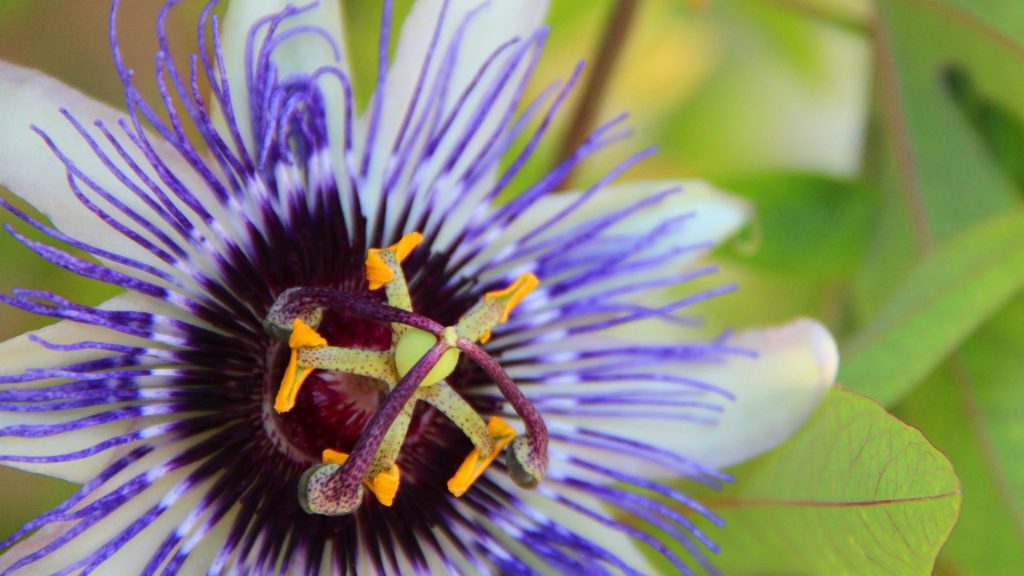Many people seek herbal remedies to manage anxiety and promote relaxation without relying on prescription medications such as Ativan. From ancient traditions to modern research, a variety of natural options have emerged that may help with anxious thoughts and nervousness.
This article lists some of the most promising natural options, uncovers the science behind their calming effects, and discusses important safety considerations and precautions.
Key Herbal Substitutes for Ativan
While Ativan (lorazepam) is a widely prescribed medication for anxiety, there is also a danger of individuals taking it to get addicted, which would then require special treatment for Ativan addiction. Because of this, some people may prefer natural alternatives with potentially fewer side effects. Several natural substitutes have shown promise in managing anxiety symptoms:
Kava Kava (Piper methysticum)
Kava kava, a plant native to the South Pacific, has been used for centuries in ceremonial and social contexts, where its calming effects are highly valued. Traditionally, the root is ground and mixed with water to create a beverage that promotes relaxation and sociability, often compared to the role of wine in Western cultures.
The anxiolytic (anxiety-reducing) properties of kava are attributed to compounds called kavalactones, which modulate gamma-aminobutyric acid (GABA) activity in the brain, much like how benzodiazepines like Ativan work. Kava also has muscle-relaxant and mood-elevating properties.
Clinical research supports kava’s efficacy for anxiety and is generally considered safe for short-term use, but there is a rare risk of liver toxicity, especially with non-water-based extracts or high doses. Compared to Ativan, kava offers similar anxiolytic benefits without the risk of anxiolytic dependency or sedation, though it has a distinct side effect profile and should be used with caution in individuals with liver concerns.
Valerian Root (Valeriana officinalis)
Valerian root has a long history of use dating back to ancient Greece and Rome, where it was prized for its ability to promote relaxation and improve sleep. The herb contains active compounds such as valerenic acid and valerenol that modulate GABA receptors and increase GABA availability in the central nervous system, which produces calming and sedative effects.
Valerian is known to ease anxiety, particularly in stressful situations, and is effective in improving sleep quality. The herb has been linked to lessening anxiety, depression, and sleep disturbances, mostly in hemodialysis patients. While valerian is generally less potent than lorazepam, it remains a valuable tool for mild to moderate anxiety and as a sleep aid.
Valerian is widely available as a supplement or tea and is ideal for short-term use. Side effects are rare and usually mild, including headache, dizziness, or stomach upset. Due to its sedative properties, caution is advised when combining valerian with other central nervous system depressants or alcohol.
Passionflower (Passiflora incarnata)
Passionflower has been used traditionally in the Americas for its calming effects on anxiety and insomnia. Its mechanism of action involves enhancing GABA levels in the brain, which helps to reduce excessive neural activity and promotes relaxation, similar to the effect of pharmaceutical anxiolytics but with a milder sedative profile.
Passionflower can be as effective as some prescription medications, found to be as effective as oxazepam (a benzodiazepine) in treating generalized anxiety disorder, with the added benefit of causing less impairment in job performance. Passionflower is also used to alleviate pre-procedural anxiety and may improve sleep quality.
The herb is considered safe for most people when used short-term, either as a tea or supplement. Side effects are uncommon and generally mild, such as drowsiness or dizziness, though rare cases of confusion or impaired coordination have been reported.
It is recommended to avoid passionflower during pregnancy and to consult a healthcare provider before combining it with other sedatives.

Lavender (Lavandula angustifolia)
Lavender is widely recognized for its soothing aroma and is commonly used in aromatherapy and herbal medicine to reduce anxiety and promote relaxation. The mechanism behind lavender’s anxiolytic effects is not fully understood, but research suggests it may modulate neurotransmitter systems, including the NMDA receptor and the serotonin transporter (SERT), rather than directly acting on GABA receptors.
People use lavender oil, particularly in the form of oral supplements (such as Silexan) and aromatherapy, for reducing symptoms of generalized anxiety disorder. Oral lavender oil was found to be as effective as Ativan in alleviating anxiety, with a similar reduction in anxiety scores and no sedative or dependency effects. Lavender tea and aromatherapy are also popular, though most research focuses on oil extracts.
Lavender is well-tolerated by most people, with few side effects reported. Rare cases of allergic reactions or rapid heartbeat have been documented, and essential oils should not be ingested directly.
Chamomile (Matricaria chamomilla)
Chamomile is one of the most popular herbal remedies for anxiety and is commonly consumed as a tea. It has a long-standing reputation for promoting relaxation and improving sleep quality. The anxiolytic effect of chamomile is primarily attributed to apigenin, a flavonoid that binds to benzodiazepine receptors in the brain, thereby exerting a calming effect similar to that of pharmaceutical anxiolytics.
Chamomile has been found to be efficient in reducing symptoms of generalized anxiety disorder and providing antidepressant benefits. Daily consumption of chamomile extract or tea can significantly reduce anxiety, with a favorable safety profile and minimal risk of adverse effects.
It’s considered safe for most people when used as a tea or supplement, though allergic reactions can occur, particularly in individuals sensitive to ragweed or related plants.
Pregnant women should avoid chamomile due to potential risks, and possible drug interactions should be discussed with a healthcare provider.
Other Notable Herbal Options
Beyond the key herbal substitutes for Ativan, you’ll find several other notable options that may help ease anxiety.
Lemon balm offers mild calming effects and is often combined with other herbs for enhanced results.
Skullcap has been traditionally used for its sedative and anxiolytic properties, though more research is needed to confirm its efficacy.
Ashwagandha, an adaptogenic herb, has shown promise in reducing anxiety by modulating cortisol and serotonin levels.
Rhodiola rosea has also been studied for its potential to improve anxiety and stress resilience.
While these herbs may not be as well-researched as the key substitutes, they’re worth considering as part of a holistic approach to managing anxiety, but always under the guidance of a healthcare professional.
Safety Considerations and Precautions
It’s important to recognize that not all natural remedies are suitable for everyone, and individual responses may vary. Some herbs can be potent and should be used with caution. Natural doesn’t always mean safe. Herbs can cause allergic reactions, interact with drugs, and have rare side effects. For instance, kava may rarely lead to liver toxicity, while cannabis may worsen anxiety.
Always discuss your plans with a qualified professional who can assess your unique situation and provide personalized guidance. They’ll help you weigh the potential benefits and risks, ensuring you make an informed decision about incorporating herbal remedies into your anxiety management plan.
Final Thoughts from Northwoods Haven
We understand that you may want to take a more holistic and natural approach to your healing. Our team of highly experienced health professionals at Northwoods Haven Recovery can help you find natural substitutes for medications such as Ativan, and design a personalized treatment plan that includes individualized care as well as aftercare support to help you in your recovery.



